
28 minute read
OUR ACHIEVEMENTS AND PERFORMANCE
STRATEGIC REPORT OUR ACHIEVEMENTS AND PERFORMANCE
In this section we outline a selection of our achievements and performance against our objectives for the year ended 30 June 2020. This does not cover the full scope of our work. Visit our website to find out more about our work: wwf.org.uk
GOAL EXPENDITURE
Here’s how much we invested in each of our five main goals during the past year, and the equivalent amount we spent the previous year.
4. CLIMATE CHANGE AND
THE POLAR REGIONS 2019-20: £1.5M 2018-19: £1.4M 3. FOOD FOR THE FUTURE 2019-20: £4.6M 2018-19: £3.1M
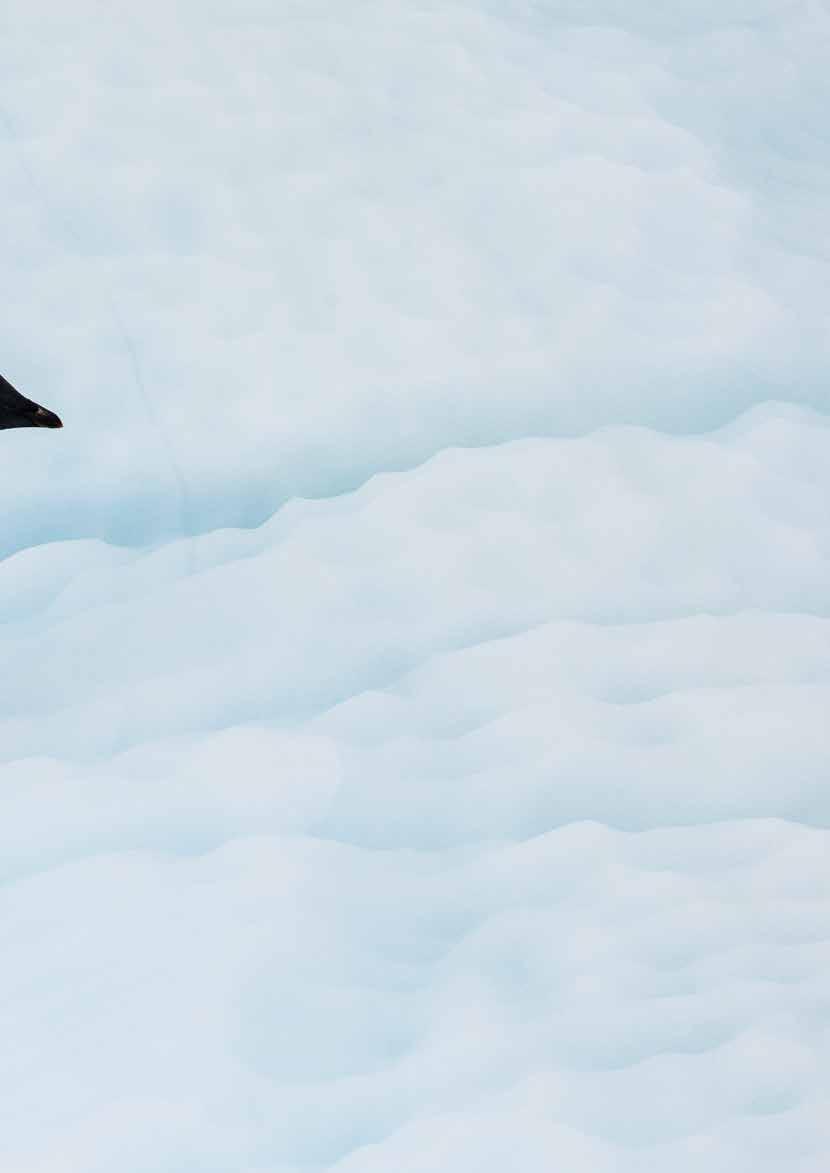
5. THRIVING HABITATS AND SPECIES 2019-20: £23.5M 2018-19: £21.7M
GOAL 1 FIGHT FOR YOUR WORLD
WE CAN ONLY ACHIEVE THE SCALE OF CHANGE NEEDED IF WE WORK TOGETHER. SO WE’RE HARNESSING PEOPLE POWER TO SHIFT THE WAY WE LIVE AND TO INFLUENCE POLITICAL AND ECONOMIC SYSTEMS TO STOP NATURE’S DECLINE AND RESTORE OUR NATURAL WORLD.
2019-20 TARGET In the run-up to global opportunities in 2020, we’ll launch a high-profile film to highlight the urgency of the threat to the world’s biodiversity – supported by political, business and community events. 2020 was set to be a ‘super year’, a pivotal time for global decisions that could begin to tackle the nature and climate crisis – including the UK hosting the latest UN climate talks. The Covid-19 pandemic has led to many of these vital discussions being postponed, but we’ve continued our efforts to build momentum that will put nature at the heart of decision making. Our ambitious plans to make the most of the opportunities in 2020 included our landmark film, David Attenborough: A Life On Our Planet, which we co-produced with Silverback Films to reach a global audience with an urgent message on how we can save our planet. The feature-length film is Sir David’s witness statement, a powerful first-hand account of how he’s experienced humanity’s impact on the natural world, in which he reflects on how fundamental nature is to our existence. Through the film, he shares a message of hope for the future and a call to action: solutions that will help us urgently heal our broken relationship with nature. Media interest in the film has been very strong, with more than 800 pieces including cover stories in national papers and magazines. Unfortunately, the pandemic meant our April launch event at the Royal Albert Hall was cancelled, and the cinema launch was delayed until September, but the film is now streaming on Netflix. 2019-20 TARGET We’ll launch a food campaign, a new phase of our climate campaign, and a campaign to drive UK domestic legislation and investment in improving the environment, agriculture and marine protection, and reducing our global footprint. This year we reacted quickly to changing circumstances to make the most of campaigning opportunities with government, business and the public. As you’ll read in Goal 2, this included two emergency campaigns in response to the devastating fires in the Amazon and Australia. 2020 was shaping up to be a big year for the climate, and the climate emergency was a prominent topic in the general election. Our support helped secure Channel 4’s televised debate between party leaders on the climate, along with strong commitments in the manifestos of the main parties. And as part of The Climate Coalition, we helped organise a digital mass lobby of Parliament. You can read more about it on page 26. In Scotland, we helped achieve transformational policies in the Climate Bill, including net zero emissions by 2045 and a 75% cut by 2030 – one of the strongest targets in the world. We launched our food campaign in February to boost public awareness and business and government action on the link between food production and deforestation. Turn to page 24 to read more about our food campaign and our efforts to get the UK Environment Bill to require businesses to cut deforestation out of their supply chains. And in June we launched our call on the UK government to put our health and that of the planet at the heart of trade deals as we leave the EU – by not lowering food and environmental standards. This work was bolstered by our report Covid-19: urgent call to protect people and nature, which explains how nature destruction is driving the risk of future pandemics. Our campaign e-action on this subject has already gained 67,000 signatures, helping us put pressure on the government to commit to upholding standards.
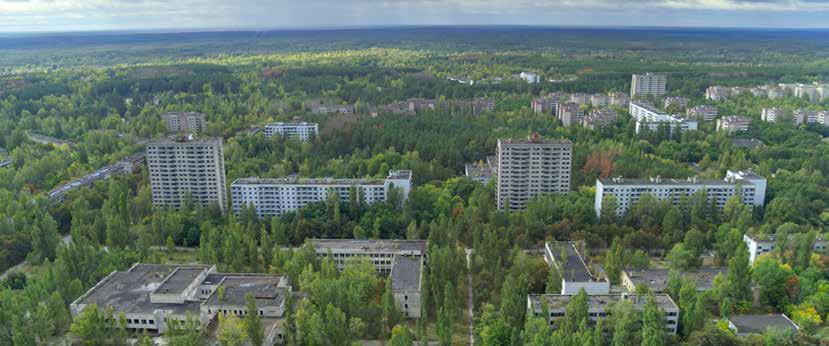
2019-20 TARGET We’ll publish a Global Futures report in the run-up to the World Economic Forum that looks at the economic impact of biodiversity loss, and we’ll drive momentum towards the New Deal for Nature and People.
The world’s economies and businesses depend on nature’s services, so accelerating environmental decline is putting future prosperity and wellbeing in jeopardy. But among heads of state, ministries of finance, businesses and investors there’s been a low level of understanding of how the nature crisis affects the economy. That’s where our Global Futures project comes in. In it, we’ve produced compelling new evidence that strengthens the economic case for making nature’s recovery a priority during global policy discussions in 2020 and beyond. Our cutting-edge approach links established economic and environmental models to calculate the costs of degrading nature in terms of gross domestic product, jobs, productivity and trade – the metrics decision-makers care most about. Our model covered 140 countries and all key industry sectors. We launched the report shortly after the World Economic Forum 2020, to make the most of advocacy opportunities when nature was high on the political and media agendas. More than 100 people from government, business, finance, investment, banking, research and the media attended our launch event, and the report gained extensive coverage. Our report’s findings have been extensively shared with government, industry and influencers around the world – and the work has been widely cited as game changing by high-profile international institutions. The World Bank used our model for further analysis to support its global finance ministry meetings, and the UK Treasury used it to inform its major review on the economics of biodiversity. The work was also integral to the launch of a new Climate and Nature Sovereign Index, which used data from Global Futures and other sources to outline risks to economies and investors related to climate and the environment, on a country-bycountry basis.
2020-21 NEXT YEAR, OUR PRIORITIES WILL INCLUDE:
We’ll deliver a public campaign for tough new nature laws, reflecting the current national context and connecting people with nature. We’ll make the most of the opportunities with the release of our film with Sir David Attenborough. We’ll influence economic recovery packages, including pushing for a new rule that public spending must help decarbonise the economy. We want environmental impacts considered in all economic and financial decisions. We’ll support the call for radical agricultural reform in the UK and abroad to reduce the devastating impact unsustainable food and agricultural production have on nature. And we’ll make the most of the once-in-a-generation opportunity to influence the UK’s Environment Bill, Agriculture Bill and trade deals.
GOAL 2 GROWING SUPPORT
WE’RE SUBSTANTIALLY GROWING SUPPORT FOR OUR WORK BY MAKING WWF AS WIDELY KNOWN AS POSSIBLE. AND BY CREATING MORE OPPORTUNITIES FOR OUR SUPPORTERS TO BE INVOLVED IN WHAT WE DO AND HAVE AN IMPACT ON OUR MISSION.
In these challenging times, more people than ever have shown how much they care about nature. We’re incredibly grateful that so many of you have chosen to give financial and non-financial support to our efforts to change the world for the better – particularly in response to unfolding emergencies. 2019-20 TARGET We’ll find new ways to give people more choices on how they engage with our work – including Amazing Planet.
Prime examples included the huge public response to devastating fires in the Amazon last autumn and wildfires in Australia in January. We tweeted about the Amazon, contrasting reaction to the catastrophic fires there with the Notre Dame blaze. This went viral, and within a day it sparked a global outcry. People gave £1 million to support our efforts to help tackle the crisis in the Amazon.
In January, we responded quickly to the Australian bushfires. We launched an emergency appeal and an immensely popular koala protector product within a week. These raised £3 million to care for injured wildlife and restore their homes. This year we also launched Amazing Planet, our new premium subscription product. We’ve designed it to inspire and educate children with the wonders of our natural world, thanks to innovative features such as an interactive world map, collectable animal fact cards, and an app that provides regular content with augmented reality.
QUIZZES, TIPS AND SKILLS
We responded to the public mood during lockdown, with popular wildlife-based social distancing tips, a #OneSmileEachDay storytelling campaign, and turning our science facts into online quizzes. We also released our first Alexa skill, WWF’s Green Energy Forecast, and a Facebook messenger chatbot quiz to help people decide which adoption is best for them. And, acting on insights about what supporters want, we’ve created regular films for our YouTube channel, featuring our staff explaining areas we work on. This fresh content is helping us deepen engagement and boost subscriber numbers.
2019-20 TARGET We’ll continue to invest in our brand activity and ramp up the ‘fight for your world’ through our campaigning in the build-up to vital decisions being made at the UN in autumn 2020.
During this highly unusual year, the public’s appreciation of nature has helped us build support and trust in our brand, bolstered by our ‘For your world’ message and the supporting materials we’ve produced. We’ve seen a continued upward trend in people’s likelihood to support us, and an increase in supporter numbers. We created a ‘What does WWF do?’ film which we’ve used on our channels and at meetings with potential partners to explain the breadth and scope of our work. It’s helped to strengthen our YouTube presence and our digital fundraising. We followed this with a powerful new climate film for our social channels. Its bold, urgent stance on our generation being the last who can stop climate change helped us stand out during a time when youth climate strikes were creating increased public noise. The film helped us to be seen during this period as the most trusted organisation on climate, ahead of the BBC and National Geographic.

In the run-up to Christmas, we created an innovative animation that united our brand with our animal adoption products. The advert aired on primetime TV and in cinemas. It focused on the effects of deforestation and was seen as clear, topical and urgent. Together with huge fundraising efforts, it led to our highest ever Christmas period income. We kicked off 2020 with an informative and punchy film to highlight the link between deforestation and our food, in support of our campaign on this topic. This reached 8.7 million viewers though social media. Public understanding that meat production is the biggest cause of deforestation increased significantly in the three months after we launched this film.
During lockdown, we tailored our message to ‘For a better world’, which chimed well with the public consciousness about the importance of nature for our wellbeing. 2019-20 TARGET We’ll launch at least two transformational corporate partnerships. We know the challenges facing our world are too big for us to tackle by ourselves. Working with our corporate partners enables us to increase the reach, scale and impact of our work in ways we couldn’t achieve alone. We’re also very grateful to them for donating our highest ever annual partnership income. Our partners’ brands are really effective at raising awareness of our work and encouraging positive behaviour change among large numbers of consumers. They also help to drive environmental best practice in their sectors. The pandemic delayed the signing of two additional strategic partnerships, but our flagship partners have made further progress towards our shared ambitions.
In particular, this year our partnership with Tesco has made great strides in our goal to halve the footprint of the average shopping basket. Together we’re driving best practice and innovations that will achieve a more sustainable food system. The main focus of our work with Sky is championing ocean protection and recovery. This year we’ve supported a project with huge potential in the fight against climate change by restoring seagrass in the UK. And we’ve developed a joint initiative, which we’re now ready to launch, to attract quarter of a million ‘Ocean Heroes’ who’ll help us push the UK government to strengthen its strategy for the recovery of UK seas.
During the year, a number of companies and brands across the UK offered great support for WWF’s Australian bushfire appeal. Notably, Aussie haircare (a P&G brand) raised £141,000, Pets At Home donated £100,000, HSBC donated £53,000 and Revolut raised £160,000 globally. This year we also marked the end of our award-winning HSBC Water Programme partnership, which has been instrumental in efforts to secure vital freshwater resources for people and planet in the Ganges, Mara, Mekong, Pantanal and Yangtze river basins. We’re agreeing a renewed, highly ambitious partnership with this valued and long-standing partner.
2020-21 NEXT YEAR, OUR PRIORITIES WILL INCLUDE:
We’ll raise more than £70 million in income to support our work, and we’ll increase the number of people who support us to 1.5 million. We’ll be more visible and relevant to our supporters and the public, launching a mass engagement campaign to showcase our brand as a leading voice on nature and climate change. We’ll launch at least two new major strategic partnerships that deliver significant impact for our mission alongside a number of other mid-size new partnerships.
GOAL 3 FOOD FOR THE FUTURE
WE’RE FIGHTING TO ENSURE THE UK LEADS A GLOBAL TRANSFORMATION OF FOOD SYSTEMS – PUTTING THE NATION ON A PATH TO SUSTAINABLE FOOD BY GETTING AFFORDABLE, HEALTHY AND ENVIRONMENTALLY SUSTAINABLE FOOD ONTO SHOP SHELVES. WE’RE MAKING IT EASIER FOR PEOPLE TO MAKE THE RIGHT CHOICES THAT WON’T COST THE EARTH.
The way we produce and consume food is the biggest driver behind the global loss of nature. It’s also responsible for up to 30% of global greenhouse gas emissions. We’re striving to increase awareness of the environmental impact of food, and to halve that impact every decade. 2019-20 TARGET We’ll raise the bar on environmental accountability across the food retail industry by launching our ‘sustainable basket metric’ of the average UK shopping basket with Tesco. As part of our ambitious aim to halve the environmental impact of the average UK shopping basket, this year we and Tesco have developed a ‘basket metric’ that allows us to track progress. The average basket is made up of 20 of the most common food products that UK consumers buy: things like bread, milk, bananas and rice. These act as ‘barometer’ products to represent the most important environmental impact areas and agendas of the food system. We’re tracking progress against a basket of around 20 metrics; our targets include reducing emissions from some of the most greenhouse gasintensive agricultural systems like cattle, reducing the sales of high-impact proteins like meat and dairy, and ending the deforestation and habitat conversion associated with soy for animal feed.
During the year, together with Tesco, we’ve recorded the data to set our baseline and we’ve assessed the first year of progress for each metric. One year into our partnership we’ve made 11% progress towards our overall goal. But our plans to convene a roundtable business event to inspire transparency and data sharing around some key metrics were delayed by the pandemic. 2019-20 TARGET We’ll campaign to end deforestation and highlight the links between food, climate and nature. We’re pressing the UK government to take a stand against the destruction of nature by bringing in new laws that prevent companies from importing food commodities that have contributed to deforestation or land conversion. We’re pushing hard for an amendment to the Environment Bill, including a requirement that businesses must carry out ‘due diligence’ checks to avoid deforestation and conversion throughout their supply chains. This year we organised influential letters in support of the due diligence legislation, signed by key businesses in the food sector. The business voice helped us challenge those in government we’d been advised were against it. We launched a food campaign in February to boost the level of public awareness about the link between our food and overseas deforestation, and to increase support for our demand for change. To strengthen public engagement on the issue we created new content on our website, ads that appeared at train stations, and films including an animation debunking 10 myths about the causes of deforestation. In the first week of our campaign, more than 11,000 people emailed their MPs on the subject. One MP noted this was the issue he’d heard most from his constituents about. We also encouraged the public to make ‘plate placards’ with messages about the effect our food has on the environment, and share images of them on social media. In the three months after we launched the campaign, our brand tracker showed a 9% increase in the number of people who believe meat is a direct driver of deforestation overseas.
We’re also calling on the UK government to put our health and that of the planet first when it agrees new trade deals – by not lowering food and environmental standards. And, in light of Covid-19, we’ve highlighted how protecting nature and avoiding deforestation is fundamental to reducing the risk of further global pandemics. Some 67,000 people have already signed our e-action on this issue.
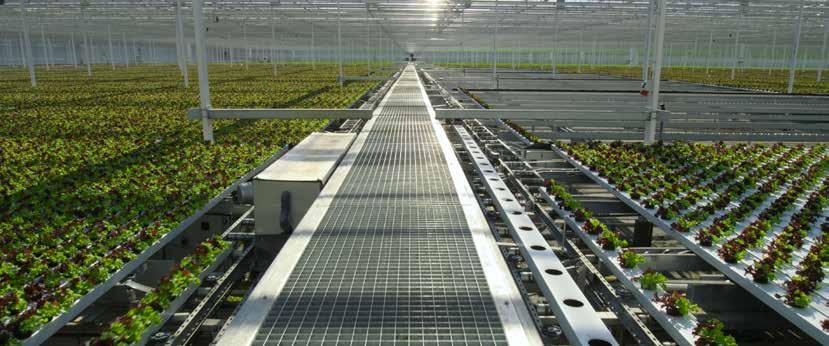
2019-20 TARGET We’ll lead work across the WWF network to encourage governments around the world to adopt dietary guidelines that move people towards more sustainable healthy diets.
HOW DIETARY CHANGE CAN HELP NATURE
Producing food is the leading cause of deforestation across the world, and it’s a major reason behind the loss of wildlife. If we’re to create a food system that helps restore nature, we must change the way we produce food but also encourage consumption towards more healthy, sustainable diets. With this in mind, we’ve led the delivery of some groundbreaking research on how dietary shifts can take place in different countries, underpinned by local realities and needs; we’ll publish a report and launch an accompanying interactive tool later in 2020. In the lead-up to the UN’s Food System Summit in 2021, we’ll use this evidence to engage with governments, to support local-level decision making and meet international targets – encouraging both local and global moves towards healthy, sustainable diets.
SUPPORTING SUSTAINABLE CHOICES
A big hurdle to a more sustainable food system is knowing the exact environmental impact of different food items. This information can help people and businesses make responsible choices. Say you wanted to compare the environmental impact of an apple grown in South Africa with one grown in the UK. You’d need reliable, up-to-date and practical information about the sustainability of each, but often such information is unavailable or unknown. We’ve been working with colleagues at the University of Oxford to create a global mechanism to overcome this. This year we’ve supported the collection of scientific data and started building a platform, known as HESTIA, so in the near future farmers and businesses will be able to track their environmental impact and act to reduce it. We’re also developing tools that will allow consumers to use the information, to help them make more informed choices.
2020-21 NEXT YEAR, OUR PRIORITIES WILL INCLUDE:
We’ll seek to support the creation of integrated national food strategies in the UK, and to influence an approach to sustainable UK trade that supports the reduction of the UK footprint. We’ll influence the sustainability strategies of target UK businesses and use their voice to help us influence UK environmental policy and legislation to reduce footprint, particularly on soy and palm, and to embed due diligence. We’ll use WWF and Tesco’s basket metric to advocate for step changes in transparency and accountability across the food retail industry.
GOAL 4 CLIMATE CHANGE AND THE POLAR REGIONS
WE’RE WORKING TO OBTAIN THE STRONGEST CLIMATE AND CONSERVATION ACTION TO PROTECT NATURE AND SECURE OUR FUTURE – RAMPING UP THE UK’S AMBITION AND ACTION TO TACKLE CLIMATE CHANGE TO DELIVER THE PARIS AGREEMENT AND HELP SAFEGUARD THE VITAL POLAR REGIONS.
2019-20 TARGET We’ll develop a strategy to ensure UK leadership in the lead-up to the UNFCCC COP26 delivers global ambition to limit warming to 1.5°C, integrating biodiversity and nature-based solutions to avert dangerous climate change. Despite the delay until 2021 of the next UN climate summit (COP26), we’ve been taking every opportunity to keep the climate high on the agenda of the UK and Scottish governments, businesses and the public – because the climate crisis won’t wait.
We developed our strategy and advocacy plan for pressing the UK to deliver world-leading climate ambition. A focus for us is increasing understanding of and commitment to the important contribution nature-based solutions can make globally towards meeting the Paris Agreement’s emissions goals. While we need to make rapid and deep cuts in our energy and food system emissions, we must also restore natural systems that store carbon – such as trees, peatlands, wetlands and seagrass. And we must address our footprint in other parts of the world. Undermining nature-based solutions in other countries through the commodities we import will prevent collective progress in limiting climate change.
Following the Covid-19 outbreak, we shifted our advocacy and campaigning towards influencing the UK government to deliver a green economic recovery by investing in accelerating the path to net zero. We published evidence – Keeping us competitive – that shows investing in net zero is good for nature and people, and powerfully good for economic recovery. The findings have strengthened our argument for a fiscal rule – a ‘net zero test’ – to guide all government spending, to make sure it supports a green recovery from the Covid recession. We’re making this case to ministers, officials and advisers – particularly in the Treasury. We also co-hosted an influential event where we brought together Sir David Attenborough and the then governor of the Bank of England, Mark Carney, to inspire leading financial institutions to act on climate and protect nature – for the planet and their bottom line.
We gained strong public support too. For example, during lockdown, as part of The Climate Coalition, we organised the first digital mass lobby of Parliament. More than 14,000 people signed up, with constituents emphasising the need for a recovery with climate and nature at its heart, in online meetings with nearly 300 MPs. Many MPs went on to raise the urgency of a green recovery publicly, and to ministers. 2019-20 TARGET We’ll map and present our vision for a network of Arctic marine protected areas. As sea ice in the Arctic melts, industrial development – such as shipping and oil and gas – is increasing in this vulnerable region. We’re helping to establish a world-first network of marine protected areas across international borders and an entire ocean, to urgently protect places that are most critical for Arctic wildlife and communities. Our vision is to support indigenous communities, governments and other stakeholders in the region to develop in a sustainable way, giving Arctic marine life a better chance to thrive in the face of the rapidly increasing pressures.
The project, known as ArcNet, is being led and funded jointly by WWF-UK and the WWF offices in Canada, Denmark, the Netherlands, Norway and the US.
During the year, together we’ve identified and mapped out the most important areas in the Arctic ocean for species. The UK team provided essential scientific and technical support. We led the work, collaborating with a panel of international polar and climate scientists.
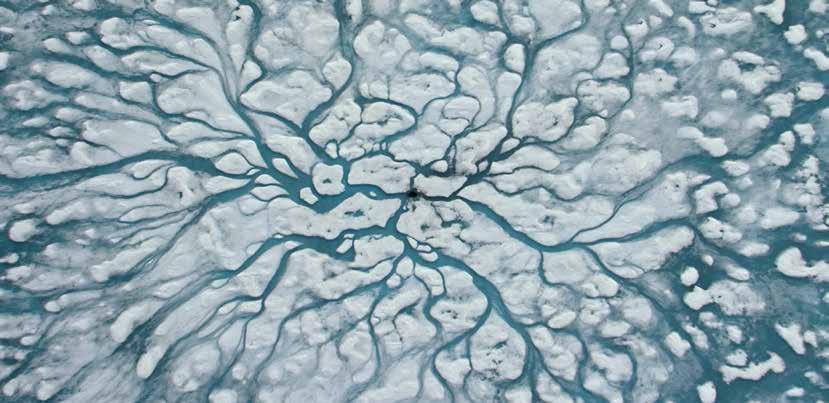
We were planning to launch the ArcNet project at a conference of the International Union for Conservation of Nature in June, but it’s been postponed until next year. Instead, we’re launching it in the autumn, at the meeting of the Arctic Council’s Protection of Arctic Marine Environment working groups. 2019-20 TARGET We’ll play an influential role in shaping and disseminating the International Panel on Climate Change’s Special Report on the Ocean and Cryosphere in a Changing Climate. This year we made a substantial scientific contribution to a special report from the UN body for assessing climate science. The report laid out in stark detail the impact climate change will have on the world’s oceans and cryosphere (the places covered in snow and ice).
WWF’s input included having a scientist from our network’s Arctic programme jointly lead the coordination of the report’s polar regions chapter. The report featured research we’ve supported – on krill, climate science, and the effect climate impacts in these habitats will have on nature loss. The report shows the world’s oceans and ice-covered areas have been “taking the heat” for decades, by soaking up more than 90% of the Earth’s excess heat and 20-30% of manmade CO2 emissions. It states that the consequences for nature and humanity are sweeping and severe, and notes that sea-level rise is now mainly because of the melting of the Greenland and Antarctic ice sheets and glaciers.
Very strong wording agreed by the IPCC’s 195 government members in the summary report concluded that “ambitious, coordinated and transformative” global efforts to curb emissions and limit temperature rise are both needed and beneficial – as are finding effective ways to adapt and sustainable ways to develop. It also highlights the need to take action quickly, and the increase in risks and costs if we delay.
We held an event at the Royal Institution soon after the report was published to share the report’s urgent findings with hundreds of our supporters and influencers. The evening was hosted by Steve Backshall, with talks by climate scientist Dr Emily Shuckburgh, Tanya Steele and Sky’s chief executive Jeremy Darroch, who outlined ways businesses can help.
2020-21 NEXT YEAR, OUR PRIORITIES WILL INCLUDE:
We’ll influence the UK governments – in the run-up to the UN climate summit – to raise their climate ambition and to support naturebased solutions that contribute to climate action, human development and the recovery of nature. We’ll influence the UK business and finance sector to implement measures aligned with a 1.5˚C pathway in their operations, supply chains and investment activities. We’ll launch Walrus from Space – our pioneering method of assessing the global walrus population in the context of the climate crisis and Arctic sea ice loss, involving satellite imagery, citizen science and tracking.
GOAL 5 THRIVING HABITATS AND SPECIES
WE KNOW IT WILL TAKE MANY YEARS TO ACHIEVE THE NECESSARY SYSTEM CHANGE ON FOOD AND CLIMATE, SO WE’RE WORKING TO HALT THE LOSS OF HABITATS AND REBUILD NATURAL LIFE-SUPPORT SYSTEMS FOR PEOPLE AND SPECIES IN SOME OF THE WORLD’S MOST SPECIAL PLACES, PROVING NATURE CAN BE RESTORED.
2019-20 TARGET We’ll facilitate an agreement between the governments of Kenya and Tanzania to conserve and restore the SOKNOT landscape – including the Maasai Mara, Serengeti and Kilimanjaro. We’ll complete a water allocation plan to keep the Mara river flowing. We’re supporting our colleagues in Kenya and Tanzania to help create an ambitious transboundary conservation programme across 134,000 sq km along the border between southern Kenya and northern Tanzania (known as SOKNOT). Home to the annual migration of millions of wildebeest, the landscape is under immense pressure from land conversion, fragmentation and degradation. We aim to contribute to the two governments’ efforts to implement their strategies for wildlife corridors and dispersal areas while ensuring we enhance the livelihoods and wellbeing of people living in these areas. Given the vast area, the complexity of threats and the many stakeholders, a big focus this year has been ensuring all the right people were involved in the planning process. We held visits, meetings and workshops to gather opinions and insights across the landscape, to get the vision and strategy right. More than 100 county and district government officials were engaged, along with people from local communities and from conservation and development organisations. We secured initial commitment for the programme concept in both countries. We’ll continue to engage with both governments and the local communities, with the aim of signing a transboundary memorandum of understanding. This has been delayed as the strategy is still being refined following the valuable input from all those who attended the workshops.
© NETFLIX / DAVID ATTENBOROUGH: A LIFE ON OUR PLANET
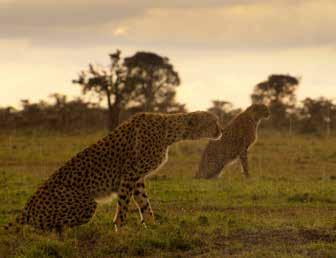
KEEPING THE MARA FLOWING
The Mara river is the only year-round source of water flowing through the iconic Maasai Mara-Serengeti landscape. But increasing demands for water are putting the river under pressure, so it’s crucial (for people and wildlife) that we get Kenya and Tanzania to agree to water allocations that will keep the river flowing. We’ve seen significant progress this year, including the development by our project partners of a national water allocation plan for Tanzania to sit alongside Kenya’s plan. These now need ratifying by ministers on each side of the border. Both plans include provisions that will help keep the river flowing. And both use the same framework, so they are well placed to enable an overall transboundary agreement, which has been delayed owing to challenges in getting support from both governments. We remain hopeful the countries will reach an agreement shortly.
2019-20 TARGET With WWF-China, we’ll develop a five-year strategy for a healthy Yangtze river. We’ll launch a Living Planet Index for the Yangtze, and technical guidance documents to advise the Chinese Ministry of Water on freshwater policy. Our long-standing work on the Yangtze has reached an important and fascinating stage. Although the Covid-19 crisis has affected key aspects of our programme, the consequent delays have enabled us to adapt our plans to changing government policy in China. For instance, in the last year President Xi has spoken publicly of the need to protect and restore the Yangtze river. Chinese officials and experts now face the challenge of deciding the best ways to achieve this goal while contributing to an economic recovery. There’s also an increasing international focus on nature-based solutions that can help countries tackle climate change and restore freshwater and other ecosystems. China is taking these issues seriously, not least because it will be hosting major intergovernmental conferences on biodiversity and wetland management in 2021 and has an opportunity to be seen as a global leader. During the year, we’ve worked with the Chinese water ministry to develop guidelines for water policy, and we’ve compiled our Living Yangtze Index – both are due to be published in autumn 2020. This slight delay will in fact be perfect timing for us to influence future policy and management of the river. Working with WWF-China, we’ve also adapted the way we’re developing our new strategy for the Yangtze, by starting with a review of our unique 20-year freshwater programme here. We’ve started work with leading Chinese and international researchers to learn lessons from our long experience of encouraging more sustainable management of the Yangtze. We’ll share the results with Chinese policy makers and river managers globally – and the findings will inform our future work in the region. 2019-20 TARGET We’ll implement the recommendations from the independent review on embedding human rights in nature conservation, ensuring strong and transparent processes underpin all our work. Last year, serious allegations were published relating to appalling historical actions by ecoguards employed by governments in places in central Africa and Asia where some WWF offices have funded conservation work. Any actions of this nature are completely at odds with our values; conservation must always be based on, and support, the rights of local communities and must never undermine human rights. All of us across the global WWF network have been treating the allegations with the utmost seriousness. WWF International commissioned an independent review to examine the allegations along with WWF’s policies, procedures, assurances and risk management. The review panel (led by Judge Navi Pillay, former UN High Commissioner for Human Rights) delivered its final report in November 2020, and WWF has published the findings in full. You can read more on page 14. During the year, across the network we’ve been reviewing and improving practices and protocols, especially in the most remote and unstable landscapes, to ensure the continued protection of the rights of indigenous people and communities across all our conservation work. As part of this, we’ve developed and launched an enhanced ‘Environmental and Social Safeguards Framework’ (ESSF). It includes strengthened and consistent mechanisms to address complaints. The ESSF has been adopted by the global WWF network, and all WWF staff globally have undertaken a mandatory training course about it. WWF-UK contributed to the development of the ESSF, giving guidance for engaging with communities. We’ve also been playing a leading role in our global network’s response to the allegations. And we’ve developed a set of ethical principles that will ensure we always follow best practice in all our work, especially in our conservation projects that have people at their heart.
2020-21 NEXT YEAR, OUR PRIORITIES WILL INCLUDE:
We’ll work together with communities who live alongside wildlife, to develop secure and sustainable livelihoods – during and post-pandemic. We’ll support communities across the Amazon region, and advocate internationally, to prevent damaging trade and environmental policy decisions and protect the Amazon rainforest. We’ll expand and scale up our support for major integrated landscape and seascape programmes, to set them on the road to being conserved, restored, connected and climate resilient.





